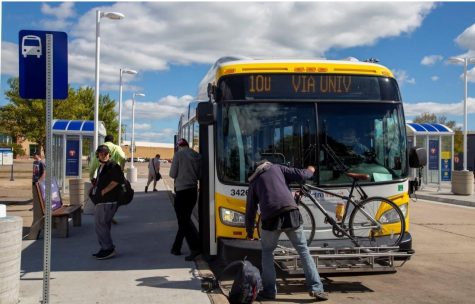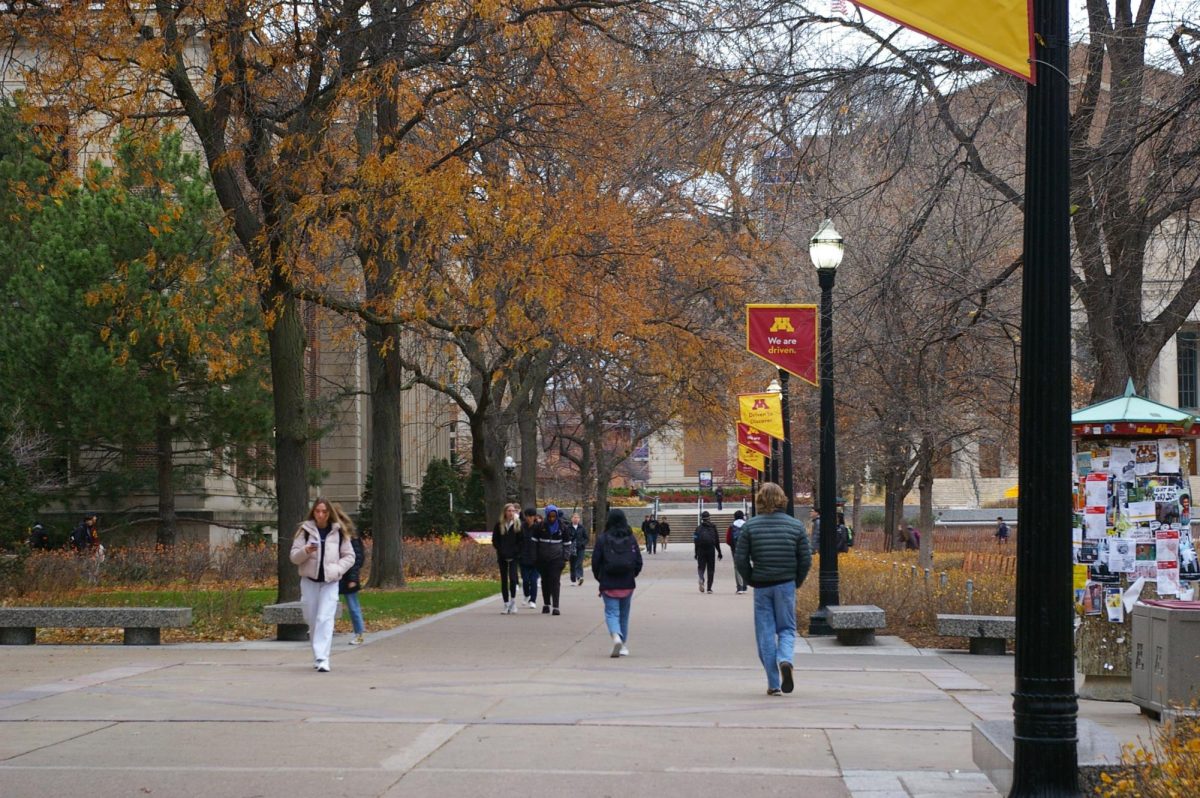The Metro F Line construction, planned to run from downtown Minneapolis to Blaine Transit Center, has been delayed by three years with no set opening date.
Metro Transit Spokesperson Drew Kerr said in a statement to the Minnesota Daily that F Line construction on Central Avenue is expected to begin in 2028, though station construction on University and 53rd Avenues may begin sooner.
Route 10 will be replaced with the F Line and will become the region’s sixth arterial bus rapid transit line, according to the Metro Transit F Line Project website.
Daniel Buchholtz, the city administrator for Spring Lake Park, said frequent stops on Route 10 take a long time and hinder those who rely on it to get to work. The new route will have fewer stops, more frequent buses and access to connections like the Metro Green and Blue Line.
Metro Transit is working with the Minnesota Department of Transit (MnDOT) to coordinate the F Line construction with construction on the University and Central Avenue corridor, also known as Highway 47 and 65.
MnDOT Area Engineer Christopher Bowers said doing both projects at similar times allows communities to experience minimal disruptions and create a safer environment.
“We’re coordinating our designs together, making sure (Metro Transit’s) station platforms line up with our roadway designs and everything comes together in a good way all at the same time,” Bowers said. “We don’t want to be in a situation where Metro Transit builds all these nice stops and then we have a road project that comes a couple years later and impacts all of them.”
Bowers said the University and Central roadways need reconstruction, as it is a spot where previous accidents have taken the lives of community members. More than a dozen crashes resulting in serious injury and four fatal crashes have occurred between the two streets.
“Simply resurfacing the road, you know, putting down a new layer of asphalt and calling it a day wasn’t going to solve the safety issues,” Bowers said. “The problems out here are so serious that it requires a rethink of what these roads look like.”
Buchholtz said the area for the F Line is underserved by transit systems, and while the delay is disappointing, the product will be positive.
Ricardo Lopez, a MnDOT communications and public engagement employee, said community engagement is important to the construction process.
“MnDOT’s going through that stage of reaching out to the public, to businesses, to the cities, everyone along these routes to be able to get a lot of really detailed input and feedback about design, about all the changes to the roadway,” Lopez said.
Bowers said the goal is not to delay but to move as quickly as possible while continuing to prioritize community and safety factors.
“To do this right, which is important, it does demand that we take some time and we have a deliberate process and we do that engagement,” Bowers said. “That’s what’s driving the schedule.”














